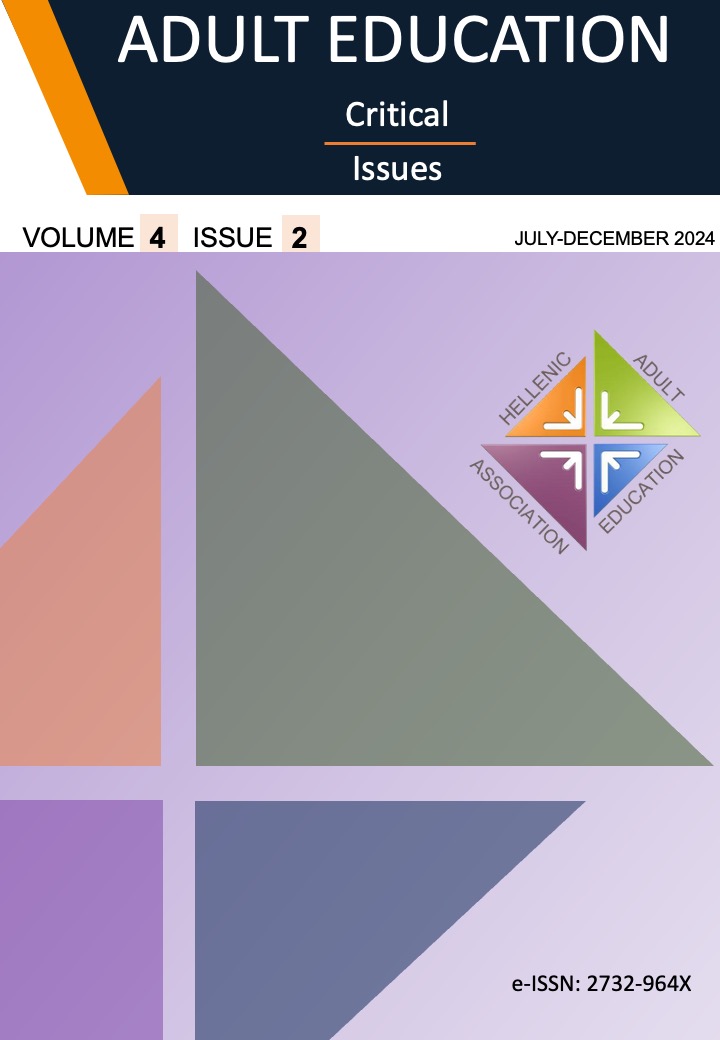The Role of Imagination in Provoking Critical Reflection and Transformative Learning through Art. An Example Taken from a Group of Teachers Training in Surrealist Poetry
Abstract
This paper presents the views of 12 primary education teachers who participated in an educational workshop entitled: ‘The difficulty in approaching surrealist poetry within the classroom and the transformation of the teachers’ views through art. The role of imagination.’ The aim of the workshop was to harness the power of imagination in order to stimulate critical thinking and transform the teachers’ dysfunctional views over teaching surrealist poetry at school. The method applied was the following: ‘Transformative learning through an aesthetical experience’ by A. Kokkos (2010, 2011, et al., 2021). During the workshop poems by Miltos Sahtouris from his collection ‘Το σκεύος’ (The Utensil) were used. By applying this method, it was observed that the teachers – trainees via processing poetry and in particular interpreting words, symbolisms, surprises, reviewed their initial views regarding the difficulty of understanding and teaching surrealist poetry. Releasing their imagination, a skill significantly important to develop at least for specific purposes in transformative learning, enabled them to discover ‘hidden’ meanings within the words of the poem and in particular ‘reading’ the images that play a dominant role in surrealist poetry.
Article Details
- Come citare
-
Καλογρίδη Σ. Σ. (2025). The Role of Imagination in Provoking Critical Reflection and Transformative Learning through Art. An Example Taken from a Group of Teachers Training in Surrealist Poetry. Adult Education Critical Issues, 4(2), 23–38. https://doi.org/10.12681/haea.37528
- Fascicolo
- V. 4 N. 2 (2024): July - December 2024
- Sezione
- Articles

TQuesto lavoro è fornito con la licenza Creative Commons Attribuzione 4.0 Internazionale.
Authors who publish with this journal agree to the following terms:
- Authors retain copyright and grant the journal right of first publication with the work simultaneously licensed under a Creative Commons Attribution License that allows others to share the work with an acknowledgement of the work's authorship and initial publication in this journal.
- Authors are able to enter into separate, additional contractual arrangements for the non-exclusive distribution of the journal's published version of the work (e.g., post it to an institutional repository or publish it in a book), with an acknowledgement of its initial publication in this journal.
- Authors are permitted and encouraged to post their work online (e.g., in institutional repositories or on their website) prior to and during the submission process, as it can lead to productive exchanges, as well as earlier and greater citation of published work (See The Effect of Open Access).



